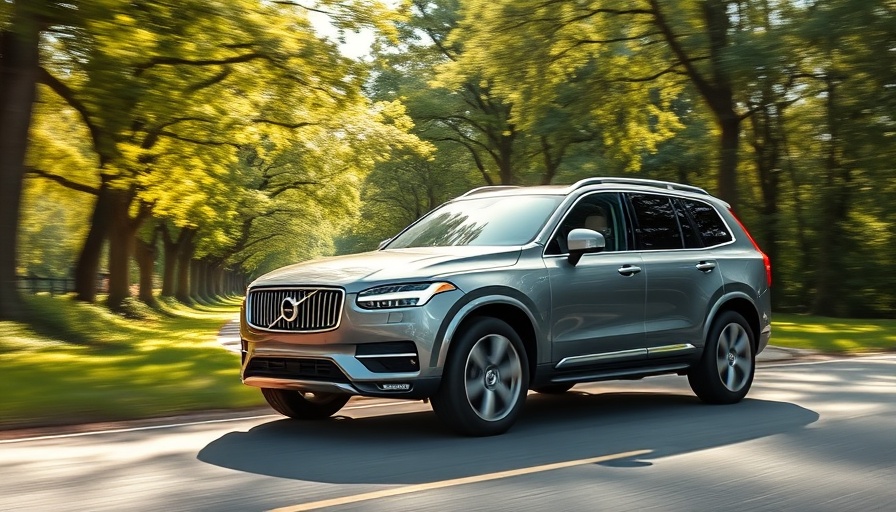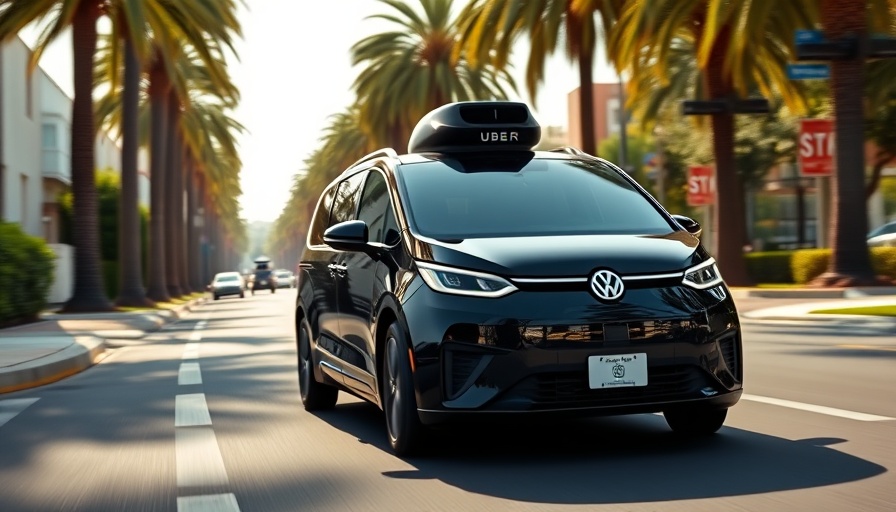
Volvo's Global Recall: What You Need to Know
Volvo, a brand synonymous with safety and innovation, has announced a significant recall affecting nearly 73,000 of its plug-in hybrid electric vehicles (PHEVs) worldwide. This recall spans various models including the S60, S90, V60, XC60, XC90, and V90, produced between 2020 and 2022. As electric vehicle technology is constantly evolving, such a recall raises crucial questions not only about safety but also about the future of electric mobility and public trust in green energy solutions.
The Technical Issue: Battery Short-Circuits
At the heart of this recall is a potential defect in the high-voltage battery system. Specifically, the problem arises when a fully charged plug-in hybrid is parked; a short circuit may occur within the battery, increasing the risk of fire. This fault is believed to stem from battery modules produced by South Korean supplier LG, manufactured between June 2019 and November 2021. The unique design of the batteries in the SPA platform (which houses them in the vehicle’s transmission tunnel rather than under the boot) has compounded this issue, leading to a broader scope of recall than initially anticipated.
Impact on Owners and the Recharge Caution
Volvo has recommended that owners refrain from charging their vehicles until a comprehensive inspection has been conducted. In regions like Germany, the Federal Motor Transport Authority (KBA) will inform affected vehicle owners directly about the necessary steps. Meanwhile, service updates will include a new software version for battery management aimed at enhancing the detection of future faults, demonstrating Volvo's proactive approach to managing safety concerns.
Future Predictions: What This Means for Electric Vehicle Safety
As electric vehicles become increasingly mainstream, incidents like these recall underscore the necessity for rigorous safety protocols within the industry. It prompts both manufacturers and consumers to critically assess the reliability of EV technologies. Going forward, we can expect automakers to invest more in quality assurance during the production phase, increasing the public's confidence in electric mobility.
Response from the Industry and Consumer Trust
This recall is not just a challenge for Volvo but speaks volumes about the entire electric vehicle market. As safety concerns come to the forefront, manufacturers will need to earn back consumer trust, especially among those considering the switch to electric and sustainable transport options. This process is crucial for the continued growth of the EV sector, particularly as environmental considerations become more integral to consumers’ purchasing decisions.
Building Better Practices in Battery Management
Given the rapid advancement in battery technology, the industry must establish more robust practices around battery manufacturing and quality control. Each recall presents an opportunity for introspection, allowing manufacturers like Volvo to enhance their protocols, invest in research, and ultimately offer safer and more reliable electric vehicles. As discussions about clean energy and sustainable practices continue to evolve, the automotive sector must align itself with these core values.
Concluding Insights: The Path Forward
The recent recall may disrupt many lives but serves as a crucial reminder of the importance of safety in green technologies, especially when considering the growing numbers of plug-in hybrids on the road. Consumers are encouraged to stay informed about such developments and understand the implications these have not only on their vehicles but also on their investment in sustainable practices.
As the landscape of electric vehicles continues to change, staying abreast of technological advancements will empower consumers to make informed choices about their transportation methods, align with green energy solutions, and contribute to a more sustainable future.
 Add Row
Add Row  Add
Add 




Write A Comment